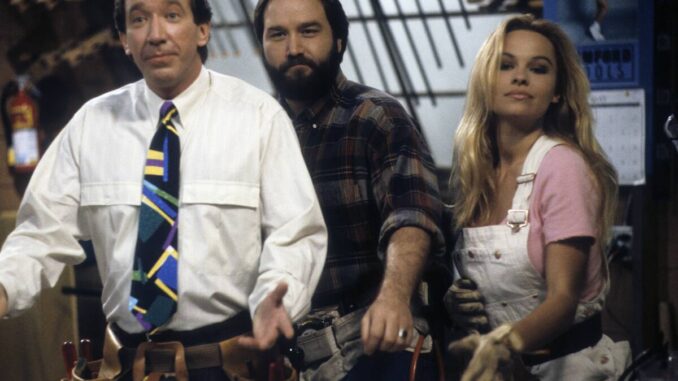
The hum of a power tool, the grunt of a “Tool Time” catchphrase, the familiar clink of a wrench – these are the auditory hallmarks of a television era shaped by Home Improvement. For many, the show remains a cherished relic, a warmly remembered tapestry of family chaos, masculine foibles, and surprising wisdom. So, when Patricia Richardson, the inimitable Jill Taylor, suggests that a potential reboot would “miss the mark,” her words resonate not merely as an actor’s lament, but as a profound insight into the delicate alchemy that made the original so special, and so difficult to replicate. Her critique, one imagines, isn’t born of cynicism, but of a deep understanding of the show’s true heart, a heart that beat far beyond Tim Taylor’s amplified antics.
Richardson’s wisdom likely stems from recognizing that Home Improvement‘s enduring appeal wasn’t solely in Tim “The Tool Man” Taylor’s over-the-top mishaps or his obsession with “more power.” While these were undoubtedly the show’s comedic engine, they were merely the setup for something far richer: the grounded, often exasperated, yet always loving dynamic of the Taylor family. The show was a delicate ecosystem, where Tim’s bluster was perpetually balanced by the intellectual and emotional gravitas of Jill, the wry observations of Al Borland, and the enigmatic wisdom of Wilson. The humor, at its core, was derived from relatable human experience – marriage spats, sibling rivalries, adolescent angst, and the universal quest for understanding, both of oneself and others. A reboot, in chasing the superficial trappings of nostalgia – the grunts, the tools, the catchphrases – would inevitably risk losing this nuanced, human foundation.
The cornerstone of Richardson’s perceived concern, and indeed, the very essence of the show’s balance, was Jill Taylor. Jill was not merely “the wife”; she was the indispensable ballast to Tim’s bluster, the intellectual foil to his primal instincts, and the emotional anchor for the entire family. She pursued her own academic passions, challenged Tim’s often-simplistic worldview, and frequently served as the translator between his well-intentioned but often-misguided actions and the complexities of human emotion. Jill was the character who reminded us that “more power” rarely solved a marital spat, a child’s crisis, or an existential dilemma. She was the voice of reason, the empathetic listener, the one who coaxed growth from chaos. To reintroduce a Home Improvement without a fully fleshed, equally vital Jill – or, worse, to reduce her to a caricature of a nagging spouse – would be to pull the crucial keystone from the arch, rendering the entire structure unstable. Richardson, having embodied this pivotal role with such authenticity, understands its irreplaceable nature.
Modern reboots, often fueled by a potent cocktail of nostalgia and commercial opportunism, frequently find themselves trapped in a kind of uncanny valley. They replicate the aesthetics but miss the soul. They can prioritize “relevance” by shoehorning contemporary issues into old frameworks, or they can simply amplify the most recognizable elements, mistaking volume for depth. Imagine a Tim Taylor trying to “add more power” to a smart home, or Jill attempting to navigate twenty-first-century parenting with the same charming naiveté. Without the specific chemistry of the original cast, the organic evolution of their characters over eight seasons, and the gentle, almost quaint humor of its era, a reboot risks feeling forced, inauthentic, and frankly, a bit sad. The absence of a character like Wilson, whose wise counsel often arrived over a fence top, would leave a gaping hole, suggesting a scramble to replace quiet wisdom with louder, less nuanced exposition.
Patricia Richardson’s observation isn’t a dismissal of progress or a stubborn clinging to the past. Instead, it’s an astute recognition of the ephemeral nature of comedic magic and the unique blend of talent, writing, and cultural context that allowed Home Improvement to flourish. Some stories, like some friendships, are best left preserved in their original, vibrant form. To attempt to revive them, particularly when key elements are missing or misunderstood, risks tarnishing the cherished memories rather than enhancing them. Richardson understands that the mark a Home Improvement reboot would miss is not just a demographic target or a ratings goal; it’s the very heart of what made the original resonate, a heart she, as Jill Taylor, helped beat so truly.